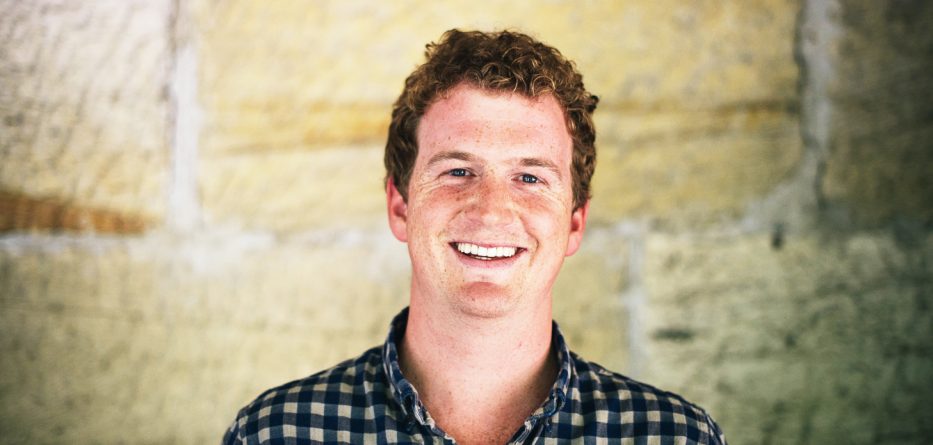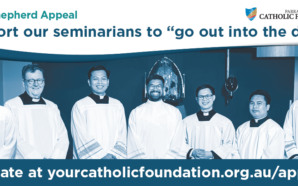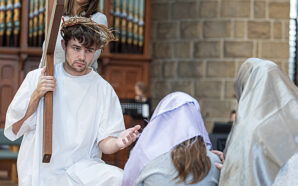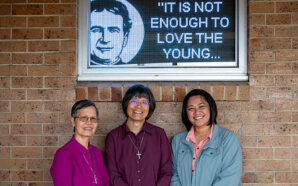Patrick Langrell was the Bishop of Parramatta’s Research Assistant from 2011 to 2013, supporting Most Rev Anthony Fisher OP. Patrick also founded Theology on Tap in Australia, a monthly pub event for young adults to hear from great speakers, which was hosted in Parramatta for several years and is now organised by the University of Notre Dame, Sydney Campus. Patrick also served as the Public Policy and Media Advisor to Archbishop Anthony Fisher OP throughout most of 2016.
Now Patrick is the Senior Digital Media Analyst at the Archdiocese of Los Angeles, the largest Archdiocese in the United States of America.
Catholic Outlook caught up with Patrick to hear about his take on the intersection of media, culture and the global Church.
The annual Academy Awards fete Hollywood’s brightest stars and in 2017 they represented a clear shift in the media’s attitude towards truth.
The Trump election and power of social media driven ‘fake news’ subverted the traditional media’s role in informing and educating the public.
While subjectivism was in vogue several years ago, “it seems like things have apparently changed quite dramatically recently,” Patrick said.
“The New York Times ran an ad during the Oscars and all over their website stating: ‘The truth is hard. The truth is hard to find. The truth is hard to know. The truth is more important now than ever.’” Patrick said.
A recent cover of Time Magazine “featured the stark question ‘Is Truth Dead?’ in big ominous red letters on a black background, identical to the infamous April 1966 cover which featured ‘Is God Dead?’” he said.
“What are we to make of all of this? Has the secular world suddenly woken up to objective truth and done a full 180? Is the New York Times and Time Magazine suddenly calling for objective truth now?”
These recent assertions assume the existence of objective truth and reveal secular society’s desire for certainty during a cultural disconnect from the timeless truths of faith.
“Well, I don’t think they are standing up for truth, at least not in the sense in which we should understand it. But, it’s clear that current trends and events in the US and around the world havehas led many to question where things really stand and where things might be going, and that leaves us with a unique opportunity to provide clarity and direction I think, in times which are confusing,” Patrick said.
What is the appropriate response to cultural and societal confusion?
Patrick suggests there are three potential responses to any cultural challenge: attack, retreat, or engagement. Patrick specifically advocates positive engagement with secular culture, rather than withdrawal from modernity’s challenges, which he sees in the recent trend of the ‘Benedict Option’.
The Benedict Option (Sentinel, 2017) by Rod Dreher popularised the ‘Benedict Option’, which focuses on building smaller, purer Christian communities rather than engaging in conventional politics.
It is a paradox in several ways: a book about withdrawal from society but also a bestseller, described by The New York Times as “the most discussed and most important religious book of the decade”; aimed at a broad conservative Christian (Protestant) audience but based heavily on Catholic thought; causing sensation, while advocating nothing new.
Dreher calls all Christians to place Christ at the centre of life and radically reorder their communities within a universe directed at the glory of God, instantiating the transcendentals of Truth, Goodness and Beauty through hospitality, liturgy, prayer and order.
The Benedict Option has also received attention in prominent publications The Atlantic, ABC Religion and Ethics, The Spectator, The Catholic Herald, First Things, Catholic World Report, Crux and The Tablet.
The book’s engaging narrative compares today to the Fall of Rome, especially regarding how a deficit of personal virtue undermines the foundations of civil society.
The lively writing style supports a clear overview of centuries of culture, history and philosophy. It provides anecdotes of fascinating communities around the globe, which have flourishing faiths and radiate the beauty of Christ.
Archbishop Chaput of Philadelphia described it as a “terrific book: provocative in its content, shrewd in its insights, vivid and engaging in its style. The strength of The Benedict Option is not just its analysis of our culture’s developing problems but its outline of practical ways Christians can survive and thrive in a dramatically different America. This is an invaluable tool for understanding our times and acting as faithful believers.”
Patrick has greater optimism about Western society and advocates a similarly radical program of ‘reform and renewal’, where Christians can “get excited about how to persuade, winsomely and lovingly those around us with the truths that we know either by our own minds or by revelation, which harmonise together in faith and reason,” he said.
“This is the radical option, it goes against the grain, and even a little rebellious from the surrounding culture.
“This option doesn’t pretend that there is no such thing as diversity and disagreement, it accepts this as an obvious, even if unfortunate, fact of the present age.
“It’s radical in the classical sense of that word, radical, meaning roots, by insisting that we go look at the foundational insights, traditions, customs, and wisdom that we’ve received from the experience of the saints, sages, and sinners throughout time.”








